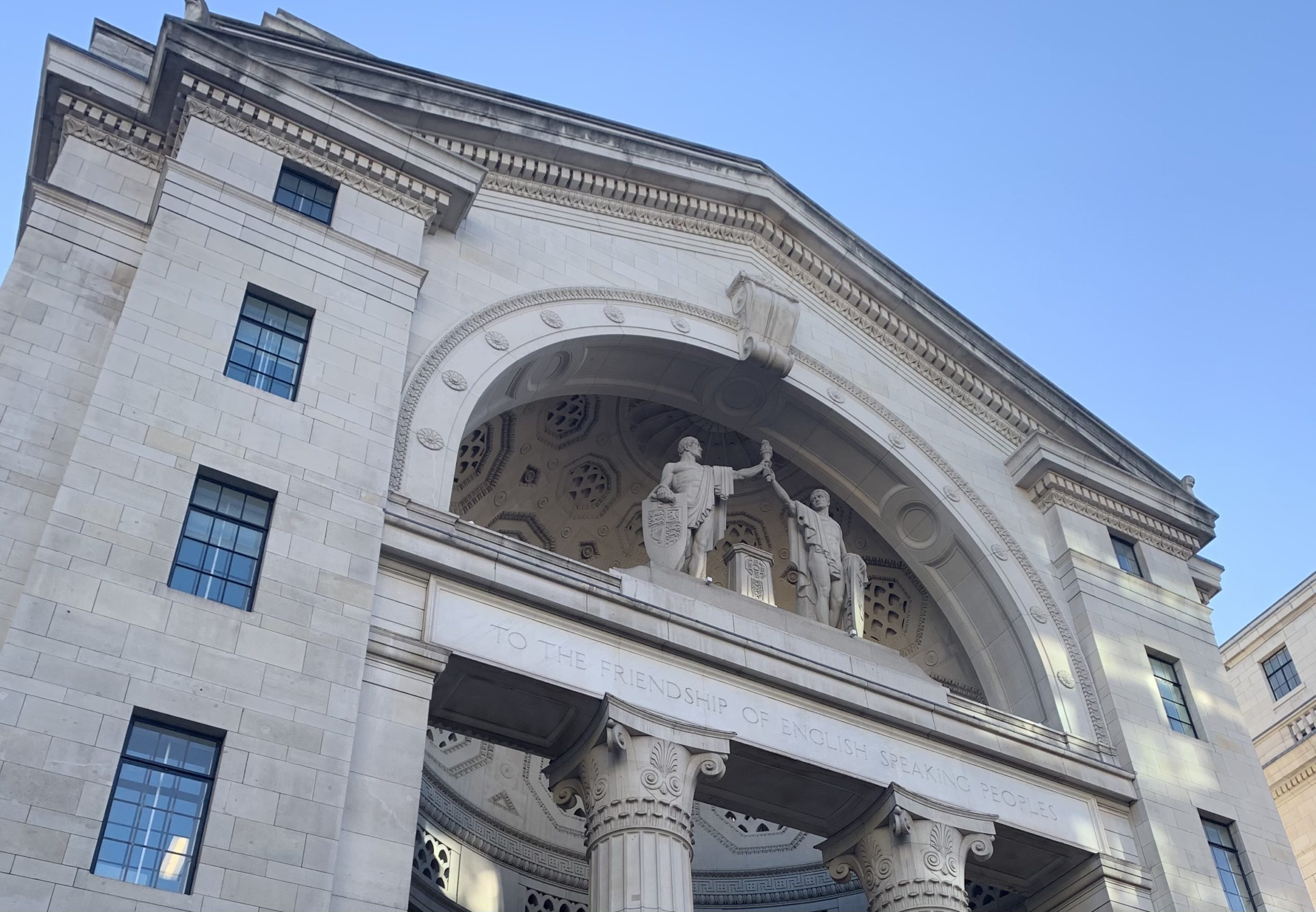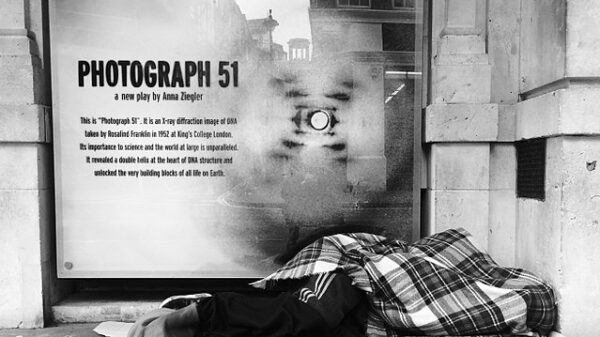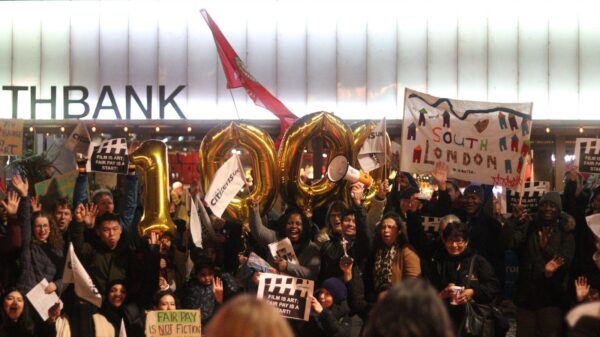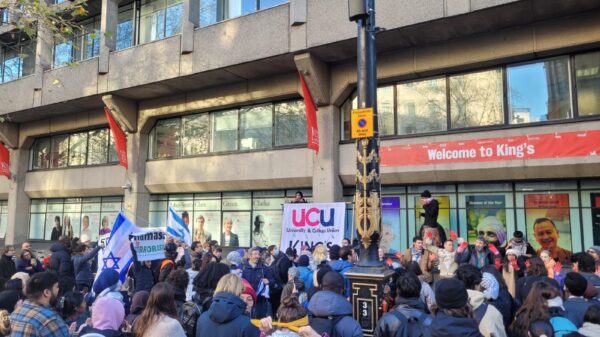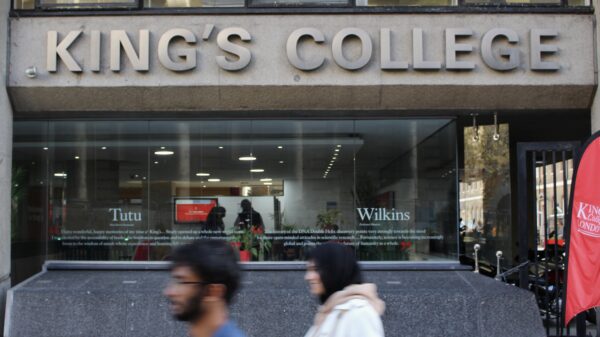Staff writer, and CAMERA-On-Campus fellow, Patrick Schnecker examines the recent rise in UK antisemitism and questions whether universities are doing enough to put the fears of Jewish students at ease.
Antisemitic cases have reached the highest level in UK recorded history, particularly impacting Jewish students on university campuses.
On 20 March 2024, the King’s College London (KCL) Israel Society was set to host a campus event focused on “conflict resolution” regarding the ongoing Israel-Hamas war. This event was going to welcome two external guest speakers on KCL’s campus: Ely Lassman – an Israeli veteran of the Israel Defense Forces (IDF) and chair of Prometheus on Campus – a non-profit organisation defending the liberal order, and Kiyah Willis – an American fellow at the Objective Standard Institute, another organisation advocating human liberties and freedoms through “rational philosophy”. Unsurprisingly, the KCL Israel Society decided to cancel at the last minute citing “security concerns” after the resident anti-Israel groups made threats.
In the days leading up to the event, both Lassman and Willis reportedly received numerous death threats on social media, with direct calls for harming the speakers as well as “calls to jihad” according to one of the intended speakers, Kiyah Willis. With the concerning threats online and thousands supportive of rallying in person, the Society was essentially forced to call off the event. So much for protecting free speech.
Since January, Jewish students at the University of Leeds have similarly been under what can only be described as constant attack. In February, the Jewish Chaplain for the University, Rabbi Deutsch, was “forced into hiding” after receiving various death threats targeting him, as well as his family. Around the same time, the Hillel House, used as a community centre for Jewish students, was vandalised with “Free Palestine” graffiti. Most recently, a stall on campus raising awareness of the 134 remaining hostages in Gaza was attacked. The students who attacked the stall were not held accountable – neither by the university nor by the police present at the scene who stood idly by.
It is not only hypocritical but highly discriminatory, for the administration and police to allow this sort of censorship-bullying of Jewish students. Through their ambivalence and inaction, all relevant authorities seem intent to continue unreservedly excluding an entire group of students from a normal education based on their political opinions and ethnic or religious identities.
This raises some questions:
- • How can such bigoted actions be justified by sympathetic student groups while they claim at the same time to support the ‘Palestinian cause’ as humanitarian and peace activists?
- • Are they trying to tell us that supporting Palestine requires the rejection of all things Israel? (The opposite is certainly not true.)
- • How exactly is ‘the cause’ advanced by harming strangers who are working to raise awareness about the innocent Israelis still held as hostages, condemn antisemitism, and promote peaceful discussions?
- • Why are so many students supporting these “Nazi”-esque expressions of antisemitism?
- • Why are administrators doing next to nothing to protect their students from such shameless bigotry and violence?
As per the last question, it strikes as odd that the same universities that claim to be central beacons of free speech have repeatedly allowed these instances of antisemitic mob rule to silence pro-Israel individuals and their viewpoints. This has become especially salient in light of the anti-Zionist protest encampments that have sprung across the US in April, and the UK in May.
My current theory is that a combination of general ignorance, fears of being ostracised and the allure of moral and social acceptance, promised by entry into the ever-growing anti-Israel crowd, has created a large pool of energetic and impressionable potential followers. Some may claim that empathy for Palestinian suffering is their main motivation, but again, it’s hard to see how those bullying Jewish students and symbolically attacking Jewish identity are improving the life of any Palestinian. Those who praised Hamas’ massacre on 7 October as “inspirational” at the University of Exeter fit this description perfectly.
As far as explaining the behaviour of the school authorities: whether they are succumbing to the threat of mob violence or stubbornly grasping a superficial ‘neutral’ stance, administrators in UK universities have clearly lacked the character to publicly condemn this exponentially growing anti-Israel antisemitism. Anyone with eyes can see that their intransigence and milquetoast condemnations do nothing but incentivise further incidents.
At the end of the day, Jewish and Israeli students need to be allowed to express themselves as openly as any other student group. Attempts at censoring their voices should be called out and rejected for what they are: antisemitism.

